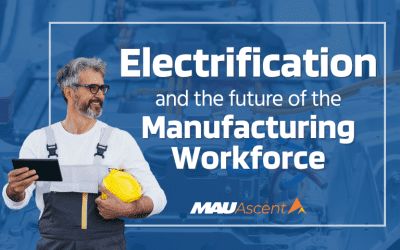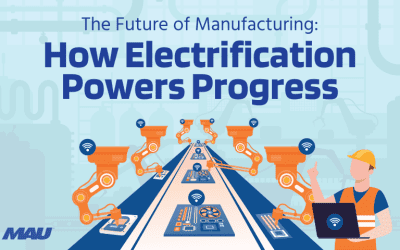In recent years, there has been a major shift in the way manufacturing is done. Traditional methods have given way to more dynamic and innovative advanced manufacturing processes that rely heavily on technology and automation. This transformation has revolutionized the industry and greatly impacted the workforce.
Today, advanced manufacturing techniques are creating new job opportunities while requiring workers with specialized skills and knowledge. Whether you are a plant manager, shift lead, or COO, understanding the impact of advanced manufacturing on our workforce will give you insights into what lies ahead in this ever-changing world of technology and innovation.
Introduction to Advanced Manufacturing
The term “advanced manufacturing” has become increasingly common in today’s fast-paced technological landscape. So, what exactly does it mean? Put simply, advanced manufacturing can be defined as the integration of innovative technology and cutting-edge processes to enhance the efficiency, productivity, and quality of manufacturing.
At its core, advanced manufacturing aims to optimize production, minimize waste, and ultimately drive economic growth. Key components of advanced manufacturing include automation, data analytics, artificial intelligence, and additive manufacturing, among others. By leveraging these tools and techniques, businesses can stay ahead of the curve and position themselves for long-term success in an ever-evolving industry.
In today’s world, businesses that are not proactively adopting advanced manufacturing technologies may be closing themselves off to numerous advantages. Integrating technology in manufacturing procedures can help streamline and optimize operations, ultimately leading to improved productivity, efficiency, and profitability.
These technologies range from automation and robotics to big data and the Internet of Things (IoT), all of which can profoundly impact the manufacturing industry. By implementing these cutting-edge tools, businesses can reduce costs, enhance product quality, and keep up with evolving consumer demands. The benefits of advanced manufacturing technologies are numerous and wide-ranging, and it is essential that businesses stay abreast of these developments in order to remain competitive and grow in the ever-changing landscape of the modern marketplace.
Building a Brand New Workforce
Advanced manufacturing has revolutionized how we produce goods and significantly impacted the workforce. This process involves the integration of technology, innovation, and automation in manufacturing practices. The result is increased efficiency, improved quality, and reduced costs.
While this advancement in technology may have raised concerns about job loss, it has in fact created jobs that require higher levels of skill and education. The World Economic Forum’s Future of Jobs Report 2023 says that AI and machine learning specialists, data analysts and scientists, and digital transformation specialists are the most prominent emerging roles. With this shift towards advanced manufacturing, the workforce must strive to adapt to new roles and technologies to remain competitive in the industry.
Traditional job roles are transforming with advanced manufacturing technologies like artificial intelligence, robotics, and the Internet of Things. In many cases, manual labor and repetitive tasks are being taken over by machines, freeing up workers to focus on more complex tasks that require critical thinking and creative problem-solving.
As we move into this new era, it is vital to prioritize education and training to equip our workforce with the necessary skills to succeed. Employers are finding it increasingly difficult to attract and retain top talent while simultaneously addressing issues such as mental health and burnout among employees. Furthermore, companies are dealing with the challenge of managing a hybrid workforce, with some employees working remotely and others in person.
While some may fear this shift, the reality is that advanced manufacturing has the potential to create more efficient and safer work environments while also increasing productivity and profitability. As we continue to embrace these new technologies, it’s essential that we remain open to learning and adapting to keep up with the ever-evolving landscape of modern manufacturing.
To learn more about how advanced manufacturing is impacting your workforce, download our most recent white paper!






